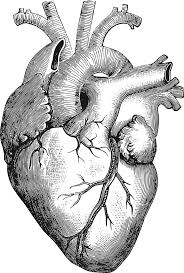Ever wonder if a glass of red wine or piece of dark chocolate is actually good for you? Or if sitting all day is really that bad for you? Muhammad Aftab, MD, assistant professor of cardiothoracic surgery at the University of Colorado School of Medicine, answers common questions about heart health.
What is an easy step to take when shopping for groceries that's heart healthy?
Fresh produce is always a great and easy step to take. Fresh fruits and vegetables are full of vitamins and minerals that are great for the body and are heart-healthy as well. Reducing processed carbs and replacing them with whole grains is also helpful, as is reducing the intake of saturated fats.
Gyms can be intimidating. Is there a simple exercise people can do every day to help the heart?
A brisk 30-45 minute walk every day or four to five times a week is easy to do and is effective not only for heart health, but also in maintaining a healthy body weight and metabolism.
What is most misunderstood about the heart or cardiovascular system you've seen on the internet/on TV?
 People tend to assume that a heart attack happens all of a sudden and that it is just an acute process. However, most heart attacks occur because of sustained cholesterol accumulation in coronary arteries and the disease process occurs over the course of some years, or even decades.
People tend to assume that a heart attack happens all of a sudden and that it is just an acute process. However, most heart attacks occur because of sustained cholesterol accumulation in coronary arteries and the disease process occurs over the course of some years, or even decades.
Does sitting pose dangers to the heart?
Numerous studies have shown that a sedentary lifestyle leads to a significantly higher risk of stroke, heart attack and early death. There is an ongoing cumulative benefit of every kind of activity that an individual does during the day. Sitting for a long period of time puts you at risk for leg and lung clots, excessive weight gain, risk of back pain and decreased metabolism. All of these can pose dangers to the heart and put you at a higher risk for heart attack and other heart-related complications.
How much blood does your heart pump per minute/hour/day/year?
The heart pumps 5L of blood per minute. This works out to 300L (80 gallons)/hour, 7,200L (1,900 gallons)/day and 2,628,000L (approximately 7 million gallons)/year.
What is your favorite fact about the heart?
The heart is a unique muscle that has a spontaneous ability to beat. It always fascinates me that we stop the heart to perform an open-heart surgery while the patient is on the heart-lung machine, and as soon as we restore the normal blood flow to the heart, it spontaneously begins to beat again.
Does drinking a glass of red wine every day actually help your heart?
 While some studies have shown that drinking a moderate amount of red wine can be a potential cardioprotective agent, the clear epidemiological evidence is still lacking. On a personal note, I don’t consume alcohol. There hasn’t really been any substantiated clinical advice to those who don’t drink to start the daily consumption of alcohol, based on the current literature. Caution must be used on an individual basis.
While some studies have shown that drinking a moderate amount of red wine can be a potential cardioprotective agent, the clear epidemiological evidence is still lacking. On a personal note, I don’t consume alcohol. There hasn’t really been any substantiated clinical advice to those who don’t drink to start the daily consumption of alcohol, based on the current literature. Caution must be used on an individual basis.
Is dark chocolate really good for your heart?
There is conflicting data when it comes to the benefits of dark chocolate for the heart. Certainly, some literature has shown that cocoa consumption can have beneficial effects on blood pressure, high cholesterol and glucose control, antioxidant and anti-inflammatory activity. However, there is also a need for longer and larger studies to establish the safety and effective dosage of the cocoa derivatives from which we can derive these benefits.
What are the signs of an unhealthy heart?
Signs of an unhealthy heart are very extensive. Some of these can be: becoming easily fatigued, difficulty in breathing, new onset chest pain or breathing problems, particularly with activity, excessive sleepiness, dizziness, frequent fainting and swelling of the legs.
Does taking aspirin help prevent a heart attack?
 There is a large body of medical literature that supports the role of aspirin in the prevention of cardiovascular events in selected population. Aspirin certainly is a simple and inexpensive prophylactic measure which can be considered in patients that are at risk for cardiovascular conditions. Early aspirin use during a heart attack (as soon as 911 is called) can reduce the blood-clot size in the coronary arteries and minimize the damage from the heart attack.
There is a large body of medical literature that supports the role of aspirin in the prevention of cardiovascular events in selected population. Aspirin certainly is a simple and inexpensive prophylactic measure which can be considered in patients that are at risk for cardiovascular conditions. Early aspirin use during a heart attack (as soon as 911 is called) can reduce the blood-clot size in the coronary arteries and minimize the damage from the heart attack.
Anything else about the heart that you would like people to know?
Although heart disease is the number one killer of men and women in America, we are also facing an epidemic of addiction to painkillers and opioids. This eventually leads to IV drug abuse (cocaine, heroin, methamphetamine etc.). We are facing an increasingly larger number of young men and women suffering from life-threatening infections of their heart valves, and thus needing heart surgeries due to drug abuse. Sometimes a simple dental procedure, a skin infection or untreated pneumonia can also lead to blood stream infection, resulting in the infection of the heart and heart valves (endocarditis). These can further complicate into heart attacks, strokes and sepsis and sepsis shocks.
As for heart health, I would suggest to set small goals for having a healthy heart: quit or avoid smoking, exercise regularly (30-45 minutes/four to five times per week), make healthy changes in eating habits, consume less salt and maintain a healthy weight.
Take care of your heart as if your life depends on it!



